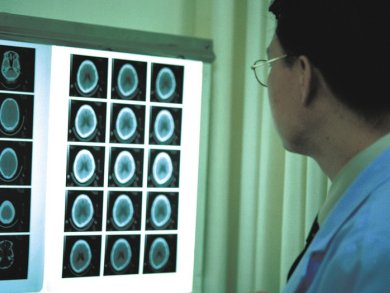Magnetic resonance imaging (MRI) is a powerful medical diagnostic and research tool. To overcome the weak signals inherent to the technique requires chemical agents based on lanthanide elements, such as gadolinium, to improve the image. Unfortunately, there are problems with some powerful contrast agents being excreted too quickly to be useful. Heavy molecules suffer the converse effect of being retained too long.
A team at Zhejiang University, China, has turned to nanoscopic dendritic particles as the delivery agents for the necessary gadolinium ions rather than the small molecule chelating agents commonly used. They have demonstrated that these compounds biodegrade under physiological conditions but not so quickly that this process would preclude an MRI investigation. The polyester dendrimer nanoparticles are retained for almost three times as long as the small molecule contrast agent (Magnevist), but are nevertheless hydrolysed particularly in the presence of esterase enzymes and so are readily excreted.
- Facile Synthesis and in Vivo Evaluation of Biodegradable Dendritic MRI Contrast Agents,
M. Ye , Y. Qian , Y. Shen , H. Hu , M. Sui, J. Tang,
J. Mater. Chem. 2012.
DOI: 10.1039/C2JM32211K


